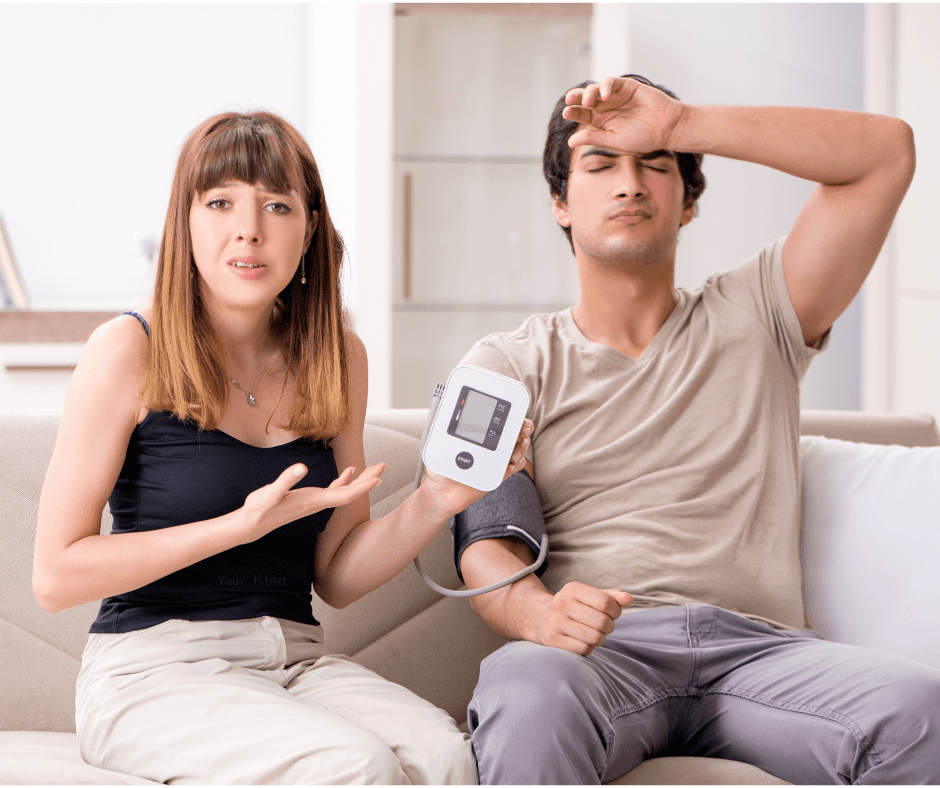Can Dehydration Affect Your Blood Pressure?

Dehydration can change your blood pressure, not just make you thirsty. When you lose too much fluid, your blood volume drops. This can result in low blood pressure and, in severe cases, lead to shock. Some research suggests dehydration may also raise blood pressure.
What Is Dehydration?
Dehydration occurs when your body lacks enough fluids to work well. This can happen if you don’t drink enough water or lose fluids quickly through sweating, vomiting, diarrhea, or frequent urination. According to the National Library of Medicine, 17% to 28% of older adults experience dehydration.
If untreated, dehydration can become serious. It can lead to kidney problems or heat-related illnesses.. One major concern is its effect on blood pressure.
How Does Dehydration Impact Blood Pressure?
When your body is dehydrated, it doesn’t have enough fluid to carry out normal functions. Blood is made up largely of water, so when you’re dehydrated, the volume of blood in your body decreases.
Low Blood Pressure from Dehydration
With insufficient fluid, your blood volume decreases. This means less blood circulates, leading to low blood pressure (below 90/60 mm Hg).
If blood pressure drops too low, organs may not receive enough oxygen and nutrients. In severe cases, this can lead to shock, which is a medical emergency.
Dehydration and High Blood Pressure
High blood pressure means your systolic reading is 140 mm Hg or higher. It can also mean your diastolic reading is 90 mm Hg or above.
Dehydration has links to high blood pressure, but research is still limited. We need more studies to explore this connection.
Dehydration can increase blood pressure due to a hormone called vasopressin. Your body releases this hormone when there’s too much salt in your blood or when you don’t have enough blood volume. Both can occur with fluid loss. When dehydrated, your kidneys hold onto water instead of excreting it.
Causes of Dehydration
Besides not drinking enough, dehydration can stem from:
- Illness: Having a high fever can lead to dehydration. Vomiting and diarrhea also cause your body to lose a lot of fluids.
- Heavy sweating: You lose fluids when you sweat, especially in hot weather, during workouts, or when you’re unwell.
- Frequent urination: Urinating often can lead to fluid loss. This can be triggered by certain medications (like diuretics), health conditions such as diabetes, or alcohol consumption.
How Long Does It Take to Recover from Dehydration?
Recovery time varies by the severity and cause of dehydration, as well as overall health.
Mild dehydration, maybe from sweating, not drinking enough water, or a brief illness — rehydration can happen within a few hours after drinking fluids. Most recover from mild dehydration within 24-48 hours by staying hydrated.
Severe dehydration can make you feel dizzy, confused, or cause a fast heartbeat. If that happens, it’s important to see a doctor. They may give you fluids through an IV at a hospital or urgent care to help you recover.
Recovery time depends on the severity of dehydration and how well someone responds to treatment.
Related: How to Know if I am Dehydrated
Feeling Dehydrated? We’re Here to Help
At DOC-AID Urgent Care, we treat dehydration and other urgent health issues. Our caring team provides fast, compassionate care for you and your family in Atlanta and nearby areas.
If you’re experiencing signs of dehydration or feeling unwell, don’t wait. Contact us today or walk in — we’re ready to help you feel better, fast.


